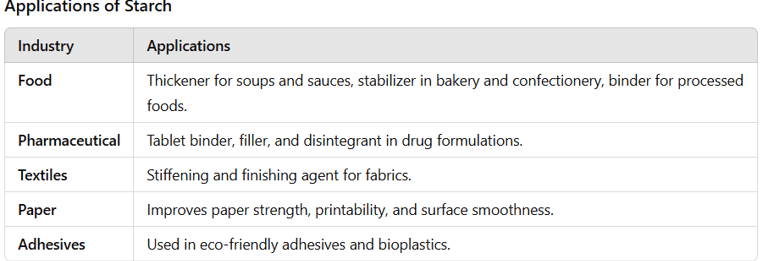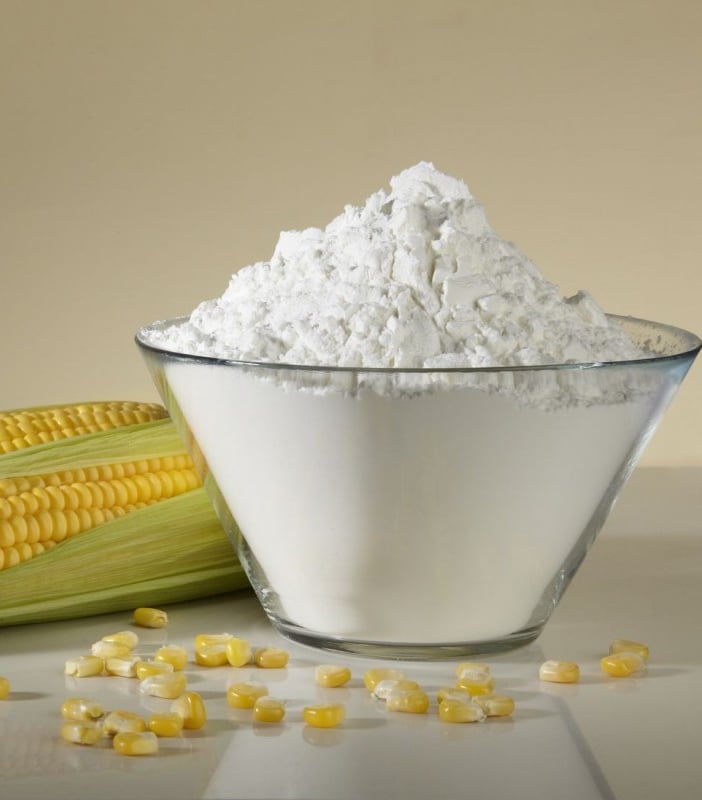Starch: The Versatile Ingredient Powering Food, Pharma, and Industry
1/9/20251 min read
Introduction
Starch, a naturally occurring carbohydrate polymer, is one of the most versatile and widely used ingredients across multiple industries. Derived from renewable plant sources like corn, potatoes, wheat, and rice, starch plays a vital role in food production, pharmaceuticals, textiles, paper manufacturing, and more. In this blog, we will explore how starch is produced, its applications, benefits, and technical details that make it an essential ingredient worldwide.
What is Starch?
Starch is a polysaccharide that plants produce to store energy. It is widely used for its thickening, stabilizing, and binding properties in various industries. Its natural origin and eco-friendly characteristics make it a preferred choice in both food and non-food applications.
Manufacturing Process of Starch
Starch is extracted through a meticulous process:
Harvesting: Plants like corn, wheat, potatoes, or rice are harvested.
Milling: The raw material is ground to release starch granules.
Separation: Water is used to separate starch from fibers and proteins.
Purification: The starch is filtered, dried, and packaged for use.
Key Benefits of Starch
Biodegradable: Starch is eco-friendly and decomposes naturally, reducing environmental impact.
Versatile: Applicable in diverse industries, from food to industrial processes.
Cost-effective: Readily available from natural sources.
Functional: Offers thickening, binding, and stabilizing properties.
Why Choose Starch for Your Industry?
Starch's natural origin and multifunctionality make it indispensable in numerous applications. Whether you're enhancing food texture, ensuring drug stability, or creating eco-friendly paper, starch delivers unmatched performance.
Conclusion
Starch is more than just a common ingredient it’s a cornerstone of innovation across industries. Its sustainable, versatile, and effective properties ensure its continued relevance in modern applications.




